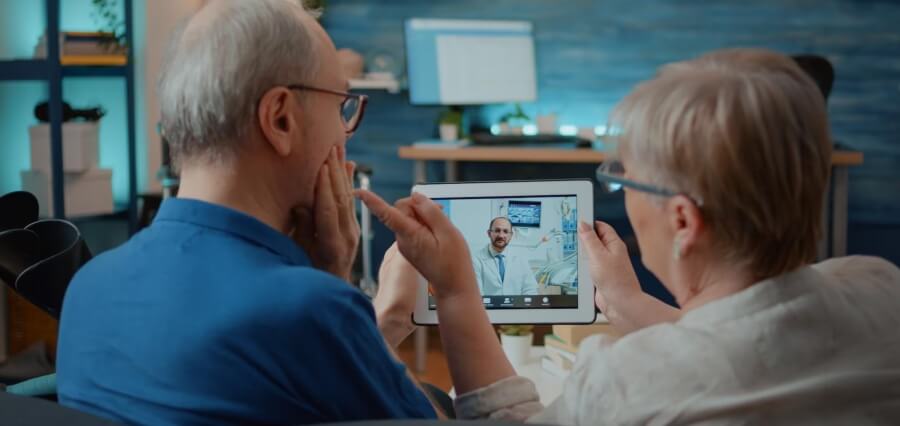In today’s fast-paced and interconnected world, technology has become an integral part of our lives. With the rise of the digital age, our communities have expanded beyond physical boundaries, allowing us to connect with others across the globe. While this presents new opportunities, it also brings challenges to fostering a sense of community care.
In this blog post, we will explore the concept of community care in the digital age and how it can be used to foster connection and support in a virtual world.
- The Power of Virtual Communities:
In the digital age, virtual communities have emerged as powerful platforms for fostering connection and support. These online forums, social media groups, and support networks provide a space for individuals to share experiences, seek advice, and offer support to others facing similar challenges. The beauty of virtual communities lies in their ability to bring together people from diverse backgrounds, geographical locations, and life experiences.
These communities offer a sense of belonging and understanding that can be especially valuable for those who may feel isolated or marginalized in their physical communities. They enable individuals to find like-minded individuals, build relationships, and share their stories without the limitations of time and space. In these virtual spaces, people can freely express themselves, ask for help, and offer support, thus fostering a genuine sense of community care.
- Nurturing Empathy and Understanding Online:
Some skeptics argue that online interactions lack empathy and genuine connection. However, community care can be fostered through virtual channels by encouraging respectful dialogue, active listening, and supporting one another’s emotional well-being.
Online platforms can provide a safe space for individuals to share their vulnerabilities, seek advice, and receive empathy from others who have gone through similar experiences. By practicing empathy and understanding in virtual communities, we can break down barriers, challenge biases, and promote a culture of compassion.
Many online communities have successfully created inclusive spaces that prioritize empathy and understanding. They establish guidelines to promote respectful communication, encourage members to share their perspectives without judgment, and offer support to those in need. Through virtual interactions, individuals can gain a deeper understanding of diverse experiences and foster empathy beyond their immediate physical surroundings.
- Digital Mental Health Support:
The digital age has also witnessed the emergence of digital mental health support platforms, offering accessible and confidential avenues for seeking help. Online counseling, therapy apps, and mental health communities have proven to be valuable resources for individuals struggling with mental health issues.
These platforms not only provide professional support but also foster a sense of community care. Peer support groups allow individuals to connect with others facing similar challenges, share coping strategies, and provide encouragement. They create spaces where individuals can openly discuss their mental health, reducing stigma and fostering a sense of belonging.
Moreover, the convenience of online mental health support makes it more accessible to those who may face barriers to traditional in-person services. Individuals in remote areas, with limited mobility, or with time constraints can now access the support they need, contributing to their overall well-being.
- Combating Social Isolation:
One of the pressing concerns in an increasingly digital world is social isolation. Spending excessive time in front of screens can lead to feelings of loneliness and disconnection. However, community care can play a crucial role in addressing this issue by encouraging online engagement and connection.
Virtual events, interest-based groups, and initiatives bring individuals together, fostering a sense of belonging. They provide opportunities for like-minded people to connect, form friendships, and engage in shared activities. By actively participating in these virtual communities, individuals can combat social isolation and build meaningful connections.
Furthermore, virtual communities also bridge geographical barriers, enabling individuals to connect with others who share their interests, passions, or cultural backgrounds.
- Building Supportive Online Networks:
Building supportive online networks requires active participation, genuine engagement, and mutual support within virtual communities. It is important to contribute positively to the communities we are a part of, share resources, and offer a helping hand to those in need.
To foster community care in the digital age, individuals can actively engage in discussions, provide constructive feedback, and offer words of encouragement. By showing kindness, empathy, and respect towards others, we create a supportive environment where everyone feels valued and heard.
In addition, it is essential to recognize the power of collaboration within virtual communities. By forming partnerships and working together on common goals, individuals can amplify their impact and create positive change. Whether it is organizing virtual events, raising awareness about important causes, or supporting community initiatives, collective efforts can strengthen community care within the digital space.
- Navigating Challenges and Digital Etiquette:
While virtual communities offer immense potential for connection and support, there are challenges to navigate. Issues such as cyber bullying, misinformation, and toxic behavior can hinder the fostering of community care online. Therefore, it is crucial to understand and practice digital etiquette.
Digital etiquette involves treating others with respect, engaging in constructive dialogue, and refraining from engaging in harmful behaviors. By promoting positive online behavior and reporting any instances of abuse or harassment, individuals can contribute to a safer and more inclusive virtual community.
Moreover, it is important to critically evaluate the information shared online and verify its accuracy before disseminating it further. By being responsible digital citizens, we can ensure that our online interactions are rooted in truth and contribute to the overall well-being of the virtual community.
- Balancing Digital and Offline Community Care:
While the digital age offers numerous opportunities for community care, it is essential to find a balance between digital and offline engagement. While virtual communities can provide valuable support and connection, it is equally important to connect with local communities, volunteer, and support local causes.
By translating the connections made online into tangible actions in the physical world, individuals can contribute to the betterment of their immediate communities. This could involve organizing local events, participating in neighborhood clean-ups, or supporting local businesses and organizations.
Digital communities can serve as a catalyst for offline community care, providing a platform to mobilize individuals, share information about local initiatives, and amplify community efforts. By harnessing the power of both digital and offline engagement, we can create a more holistic approach to community care.
- The Future of Community Care in a Digital Age:
As technology continues to advance, the future of community care in the digital age holds immense potential. Emerging technologies, such as virtual reality and augmented reality, can enhance virtual community experiences and create even more immersive and interactive spaces.
Virtual reality can simulate physical environments and facilitate virtual gatherings, creating a sense of presence and connection. Augmented reality can overlay digital information onto the physical world, enabling individuals to engage with their communities in new and innovative ways.
Furthermore, the continued development of artificial intelligence and machine learning can contribute to personalized support within virtual communities. Intelligent algorithms can provide tailored recommendations, match individuals with relevant resources, and identify trends or issues that require attention.
As we move forward, it is important to adapt and innovate community care approaches to meet the evolving needs of a connected society. By embracing technological advancements and harnessing their potential, we can foster even stronger connections, support networks, and a culture of care in the digital age.
Conclusion
In the digital age, community care remains a vital aspect of our well-being and sense of belonging. The virtual world offers immense potential for fostering connection, support, and empathy. By actively engaging in online communities, nurturing relationships, practicing digital etiquette, and translating virtual connections into offline actions, we can create
a world that reflects the values of community care. Let us embrace the digital age as an opportunity to foster meaningful connections and build stronger, more supportive communities, both online and offline.
| Read More Articles: Click Here |










